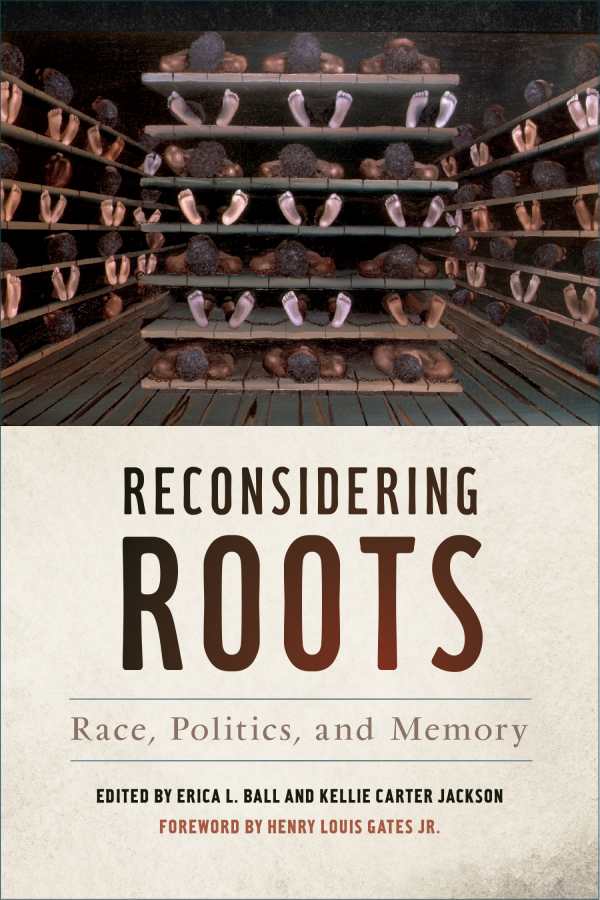Reconsidering Roots
Race, Politics, and Memory
This rich book on Roots captures the complexity of its reception and its enduring place in popular culture.
In ten chapters, the essayists in Reconsidering Roots posit that, although Roots has been a topic of debate since its release, few would argue against its impact on readers and viewers around the world, and how they think about slavery, reconstruction, African civilization, and the modern civil rights movement. Editors Erica L. Ball and Kellie Carter Jackson have compiled an honest and intriguing look at Roots and its creator, Alex Haley.
The three sections of the book—“Rethinking the Context,” “Rereading Roots,” and “Rerouting Roots”—are complementary, first establishing the tone in America when Roots was released, and then offering four tightly woven analyses of images of black people and white people—or, how black masculinity and whiteness were handled in an effort to make Haley’s story about black experiences palatable for white audiences.
The last section illustrates the extent of Roots‘s reach, with fascinating chapters about how South Africans plagued by apartheid were prevented from seeing the miniseries, but looked for ways to break the ban. The final chapter tells how Roots helped spark a young man’s fight in Taiwan against the Chinese Nationalist Army for the right to return to China. Each chapter is centered on an argument followed by a discussion of specific passages and scenes that support the author’s reading.
While there are no section prefaces, research and analytical skills are apparent across chapters. The strength of this collection rests in how scholars from varied fields, from black studies and education to history and media studies, have come together to problematize the extent of Roots’s influence in illuminating ways.
Though one chapter acknowledges that Alex Haley’s best-selling novel led many to explore their ancestry, his integrity is called into question in another, leading to at least two accusations of plagiarism. The first plagiarism charge is well-known. Careful research unveiled Margaret Walker’s failed court case due, she believed, to racism, regionalism, and sexism.
The 1977 miniseries Roots was adapted for a contemporary audience in 2016, suggesting that the narrative continues to be cherished. This collection—which is a thorough examination of Roots—helps to explain why.
Reviewed by
Kaavonia Hinton
Disclosure: This article is not an endorsement, but a review. The publisher of this book provided free copies of the book to have their book reviewed by a professional reviewer. No fee was paid by the publisher for this review. Foreword Reviews only recommends books that we love. Foreword Magazine, Inc. is disclosing this in accordance with the Federal Trade Commission’s 16 CFR, Part 255.

